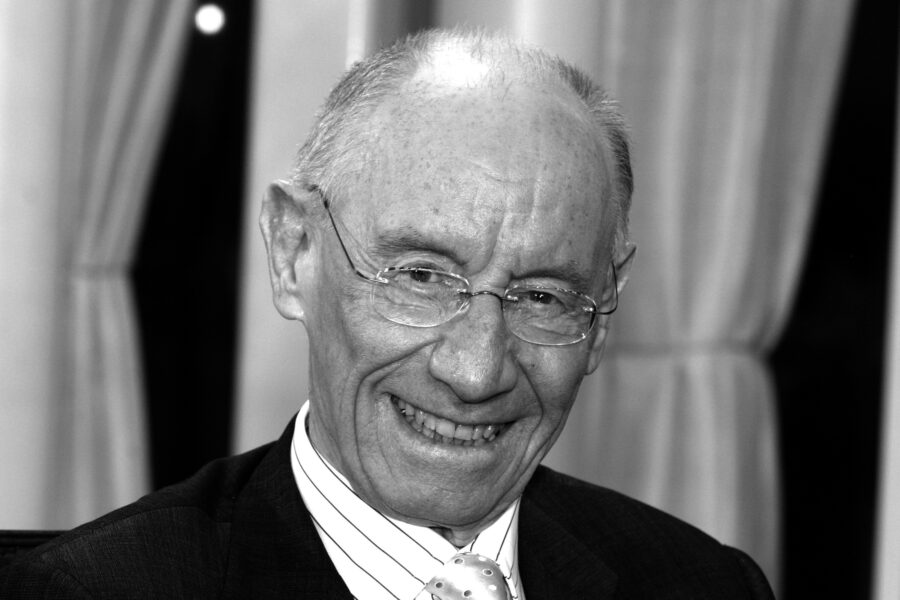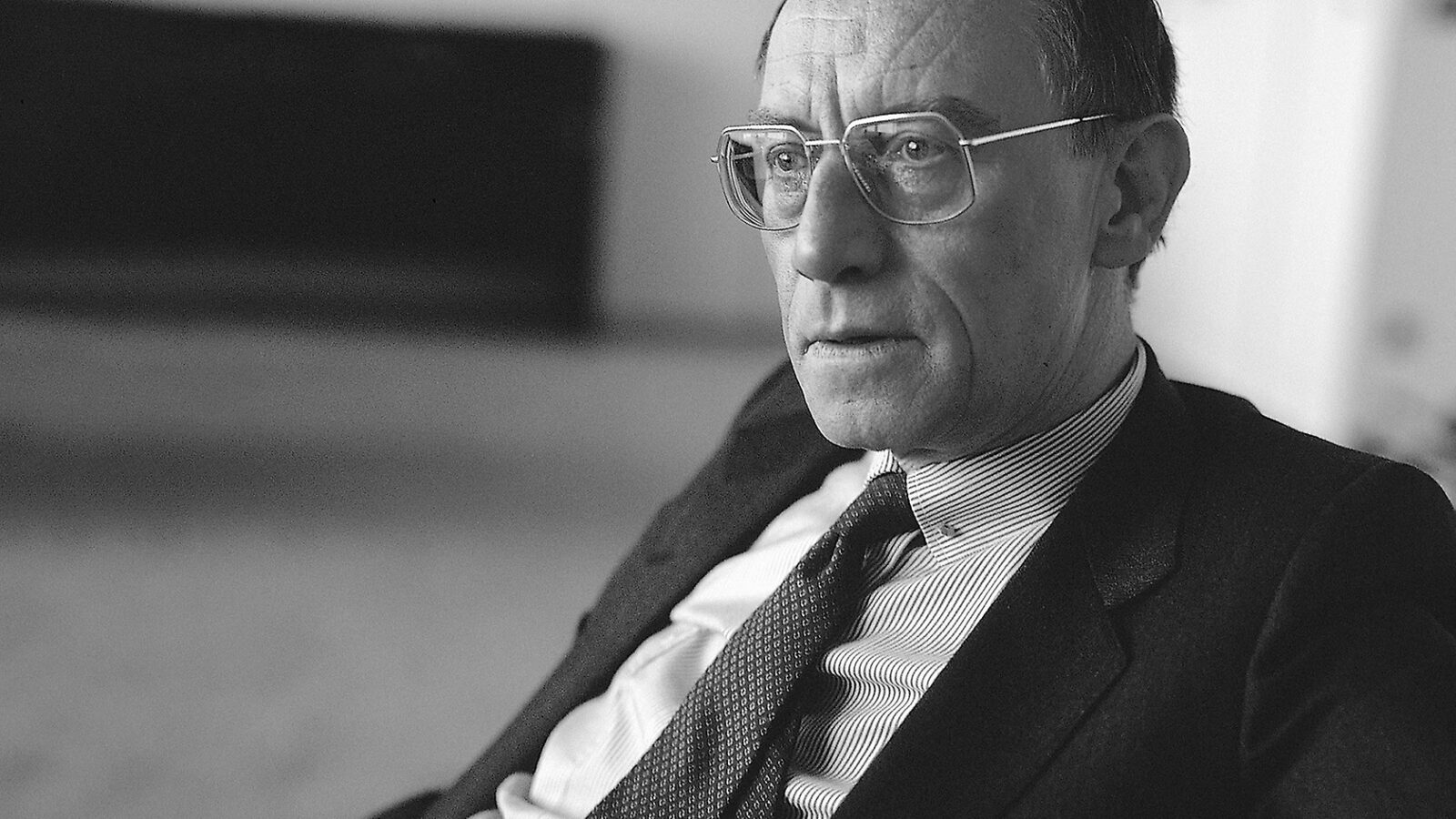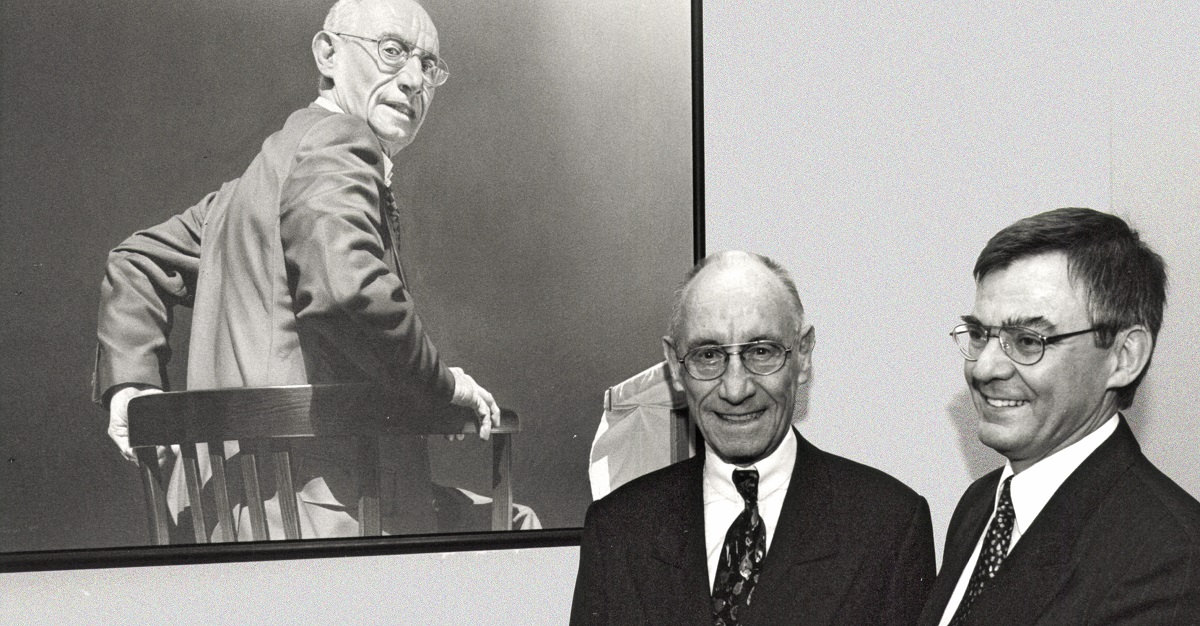
Edzard Reuter, former Daimler-Benz CEO and son of a prominent Nazi opponent died at the age of 96. Reuter, whose family fled Germany under Adolf Hitler’s rule, spent much of his early life in Türkiye after Mustafa Kemal Ataturk welcomed his family and many other German exiles.
This refuge in Türkiye laid a foundation for Reuter’s life, which he frequently celebrated as a second home, crediting Turkish hospitality as a formative influence.

The 1930s marked a transformative period in Türkiye’s history, driven by its journey toward modernization and national growth. During this time, Türkiye became a haven for many German scientists, academics and intellectuals, including Reuter’s family, who sought refuge from Nazi persecution. Among those who left a lasting impact on the young Turkish republic were notable figures of German opposition or Jewish descent.
Edzard’s father, Ernst Reuter, a member of Germany’s Social Democratic Party (SPD), was a vocal opponent of Hitler and fled to Türkiye in 1934, where he taught urban planning and public administration in Ankara. One year later, Edzard, then seven years old, joined his father with his mother, Hanna. They would spend over a decade in Türkiye, with Edzard's childhood unfolding in the heart of the new capital, Ankara.
Throughout his life, Reuter fondly recounted Türkiye’s warmth, hospitality and tolerance. In interviews, he often spoke of Türkiye as his "second homeland" and expressed gratitude for the opportunity to witness Turkish society during its dynamic years.
His experiences in Türkiye strengthened his resolve to support Turkish-German relations, a dedication that would later shape his leadership at Daimler-Benz and his public persona. Following World War II, Reuter returned to Germany with his family in 1946.

Edzard Hans Wilhelm Reuter was born on February 16, 1928, in Berlin. His father, Ernst, later served as Berlin’s mayor from 1948 to 1953. Due to the National Socialist regime’s policies, the family was forced to leave Germany and spent the exile years in Ankara. As a result, Reuter, like many intellectual exiles in Türkiye, developed a strong fluency in Turkish, comparable to Fritz Neumark and other German academics of the era.
After returning to Germany, Reuter studied mathematics, theoretical physics and later law, with studies spanning Berlin Humboldt University, the University of Gottingen, and Berlin Free University. His career began in media, working for the German film studio UFA and later as an executive for the media company, Bertelsmann. In 1964, he joined Daimler-Benz, where he worked his way up to CEO, a position he held from 1987 until his retirement in 1995.
As CEO, Reuter emphasized a more "open" corporate culture and championed an inclusive approach, though his methods faced criticism from stock market-focused analysts like Ekkehard Wenger.
When Reuter stepped down, Jurgen E. Schrempp succeeded him, pivoting toward a shareholder-focused business strategy.
In his later years, Reuter remained committed to fostering Turkish-German friendship and supporting Berlin’s development, notably contributing to the Potsdamer Platz expansion, for which he was named an honorary citizen of Berlin in 1998.
Reuter's remarkable journey from a childhood shaped by exile in Türkiye to becoming the CEO of Daimler-Benz exemplifies the enduring bonds between cultures.